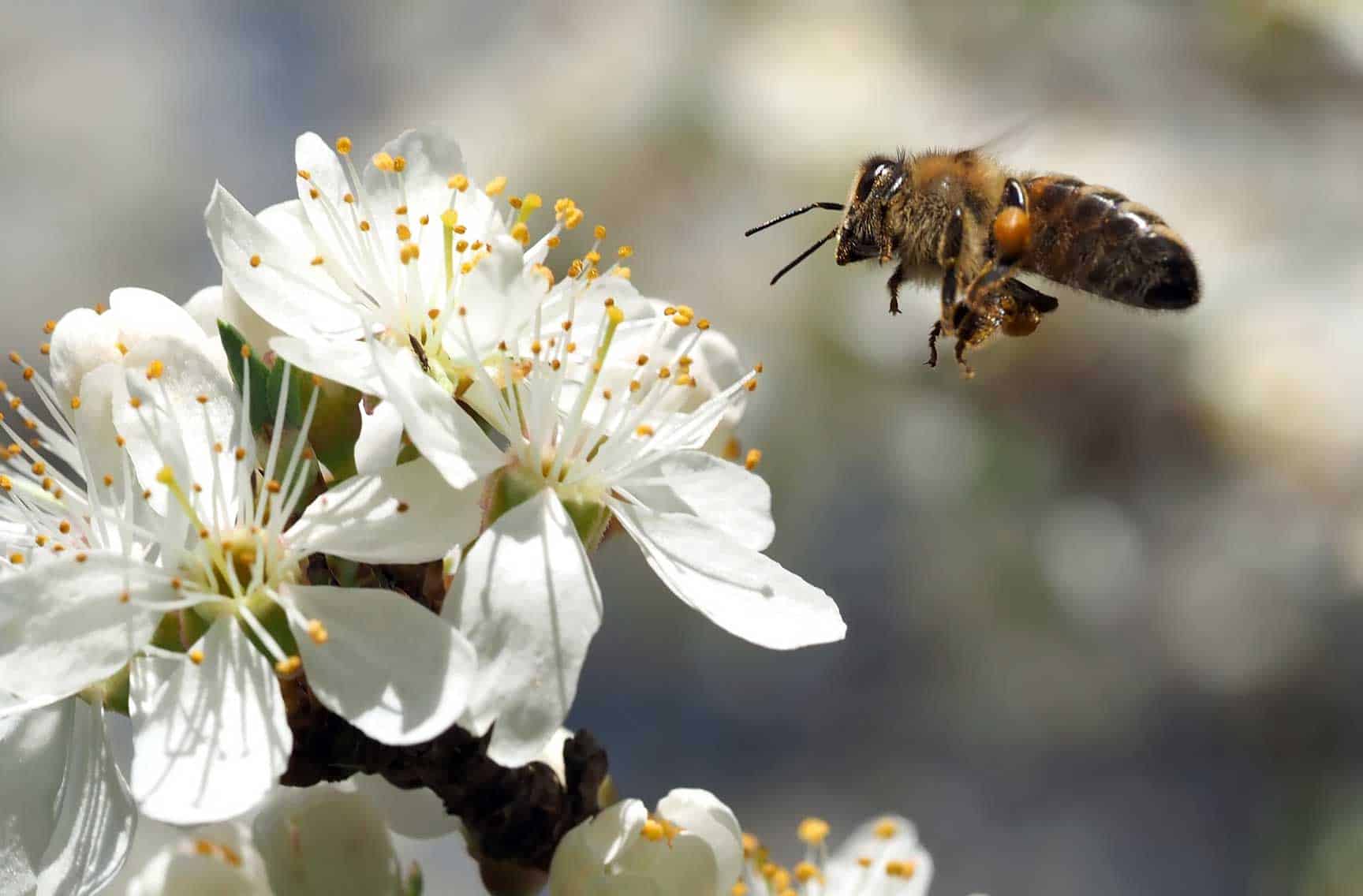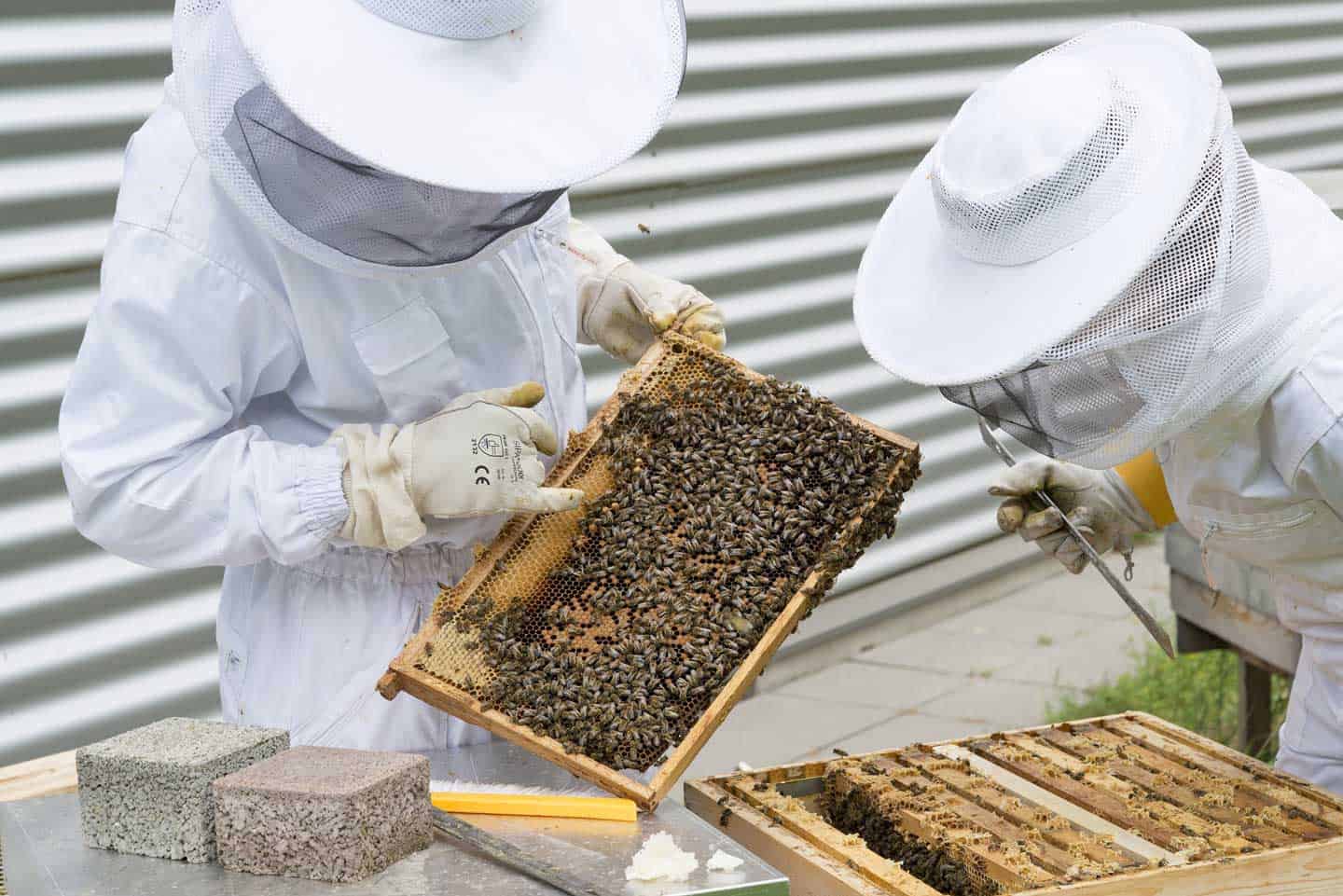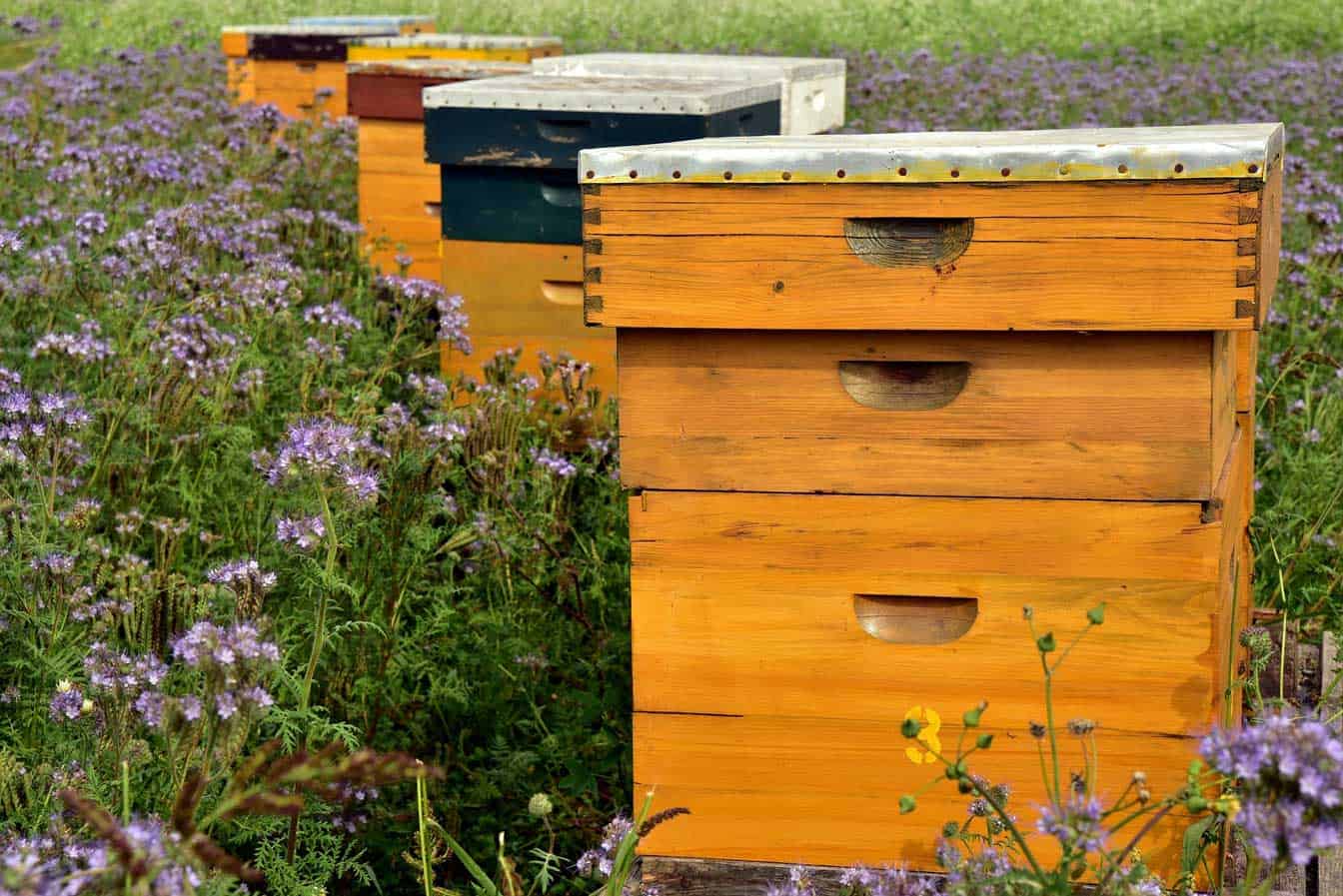As the name suggests, beekeeping is the keeping or the maintenance of bees, typically honeybees. Beekeeping has become a hugely popular hobby in recent times, particularly since reports started to surface about the decline in bee population numbers. Indeed, some enterprising individuals are even turning their hobby into a way of making money.

Why Take Up Beekeeping?
The bee population is under threat and there are countless reasons for this. Climate change, disease, toxic pesticides, and habitat loss are the main culprits, probably responsible for almost one of every ten wild species of bee in Europe facing extinction.
If you decide to take up beekeeping, you will be doing your bit to help the bee species survive, and you will also benefit from the various products produced by your hive. Honey is perhaps the most well-known product made by bees, but you can also collect bee pollen, flower pollen, beeswax, and royal jelly.
You might also decide to nurture a large colony of adult bees that can then be sold on to other beekeepers.
Getting Started with Beekeeping – What to Consider
Before getting started with beekeeping, there is much to consider. It is important to learn about the equipment required to undertake such a project and whether there are any regulations that need to be followed in your country or local area. You will also need to find out about where to actually source your bees from.
In the first instance, it is crucial to have enough space for a bee colony. It is recommended to have at least one-tenth of an acre per colony. It is also important to allow a clear flight path for your travelling bees.
You need to check the laws in your local area in relation to beekeeping. There may be certain regulations that have to be followed. For example, in the US, you can check specific state beekeepers’ associations while in the UK, you will find information from the British Beekeepers Association.
Before you considering your new venture, be aware that there comes a quite high level of responsibility with beekeeping. You need to remember that beekeeping is a form of livestock management and so it will be your responsibility to look after the bees and ensure their wellbeing. There might be a lot of work involved as you have to ensure that your bees always have sufficient amounts of food and that there is enough room to expand the colony if required.
You have a responsibility to ensure that your bee colony is kept free of disease. You will need to learn how to keep the swarming impulse of the bees under control because not doing so could mean you losing up to half of your bee population in one fell swoop.

Where to Source Your Bees From
It is important to do your research before buying bees to start a colony. In the UK, the Food and Environment Research Agency (FERA) has guidelines on what you should consider when looking for bees.
It is highly recommended that you source bees from within your local area as buying from beyond could mean introducing and accelerating the spread of disease.
When looking for a bee supplier, always try to find one with a good reputation. Look for a bee supplier with good reviews from other buyers. Before completing a purchase, ask questions such as where the queen bee has come from. You should know whether she has been imported, purchased by the supplier locally, or has been bred directly.
It is best to examine the bees before buying to ensure they are disease-free. However, if you are new to beekeeping, this may not be something you are comfortable doing. If this is the case, ask an experienced beekeeper to perform this task for you. A good supplier will have no problem with this.
What to Look for in a Good Bee Nucleus
According to FERA’s guidelines, a good bee nucleus will:
- have a young prolific queen capable of laying
- be disease-free
- contain all stages of bee brood
- have a minimum of three frames with brood
- have at least four frames full of honeybees
- have stores of at least one full comb of honey and half a frame of pollen.
It is advisable that you check to ensure that the combs you are buying are clean and in good condition. They should ideally be no older than one season.
What Equipment Will You Need to Start Beekeeping?
You are obviously going to need a beehive in the first instance. But what type of beehive should you buy? Studies have found that wild bees tend to nest in trees that have openings no larger than two to five square inches.
Nevertheless, honeybees are adaptable and nest in various locations including bird houses, buildings, caves, and even empty boxes. What is more important to the bee is the size of the nest, the size of the opening, and where the entrance to the nest is located. Bees tend to prefer the entrance to face south or east, so this is something to take into consideration as well.
Many different types of beehive boxes are currently available, and there are many different designs about. It is important to consider your own physical abilities in terms of managing a hive and the box before making a purchase. Finding a beehive box that is simple to use and that is bee-friendly is probably best, especially for beginner beekeepers.
In addition to a beehive box, you will need protective clothing. Taking care of bees means risking stings, so always wear the maximum protection possible. I advise an all-in-one suit that comes with a hat and a veil.
You will also need to invest in a smoker. A smoker allows you to puff smoke around the hive when you want to collect honey. Bees associate the smoke with a forest fire, and so will begin eating previous honey believing that their home is in danger. As they do this though, you will be free to collect products.
Where to Place a Beehive
Location is important when it comes to beehive placement. Ideally, it should be put in a spot where it can benefit from the sun in the morning. Doing this ensures that the bees will leave the hive early to look for pollen.
If you live in an area that has a temperate climate, placing the hive in a spot that receives full sun is a good idea. Nonetheless, if you live in warmer climes, it is preferable to locate the hive in a spot that will be shaded in the afternoon.
It is also important to make sure that the hive is not situated in a part of your garden or property that is affected by direct winds. If you have fences or shrubbery, position the hive close to these to allow for protections against strong winds.

When to Get Started with Beekeeping
It is generally accepted that new beekeepers start introducing bees to their hive in early spring. This allows the colony to grow before pollen collecting starts. The queen will begin laying eggs in the springtime and the colony will grow rapidly until around July.
Keep an eye on how the colony is progressing though because if your bees do not have enough room for egg-laying and storing honey, there is a risk that they will swarm. If the queen bee believes that there will not be enough space for the colony to survive, she will leave with half of the worker bees to look for another nest to form a new colony. Although losing half of your bee population will not mean the end of the colony, it will mean that honey production is immediately cut in half.
Honey is usually collected in August after most summer flowers have bloomed. It is important to replace the collected honey with a sugar solution for the bees to feed on. Providing good nutrition for the bees during the winter will ensure their survival.
Packing Up for Winter
Once summer is over and you have collected the honey, you will need to prepare the hive for the cold winter months. It is important to ensure that there is a laying queen in the colony. If not, you will need to obtain one.
Also be sure that the colony has enough stores to feed on during the winter. If you have taken too much honey, you will need to replace with a sugar solution, as mentioned above.
Make sure that the entrance to the hive is reduced in size to ensure that small creatures cannot get in. The hive will also have to be well ventilated to reduce the risk of moisture and you need to make sure that it is well protected from wet weather.
The Importance of Research
As you can see, there is a lot to consider before getting started with beekeeping. If you are thinking about taking up beekeeping as a hobby or as an extra income source, it is wise to do some research first. Learn all you can about how to get started and the equipment you will need and read up on the best ways of protecting your colony from pests and diseases.
By learning as much as you can before getting started, you will have a much better chance of long-term success.
